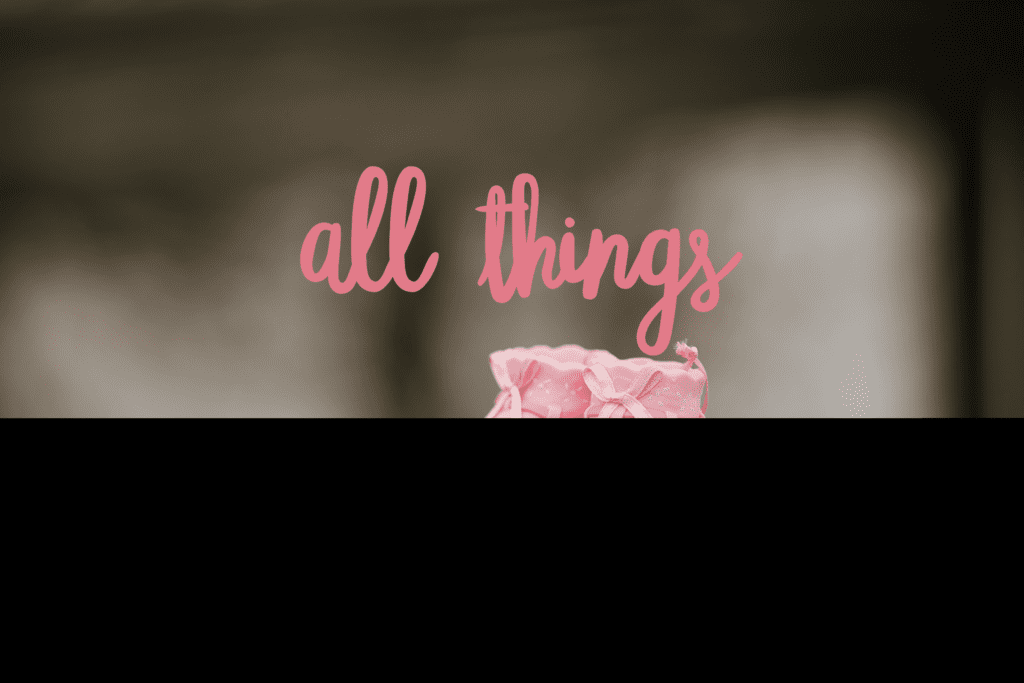
Over a year ago, we learned that our third child would be born with Down Syndrome. The doctor called about a potential marker for Trisomy 21 following my 32-week ultrasound, and in a way, I was not totally surprised. I had noticed it. Our little baby’s tongue extended far out of her mouth several times on the monitor across from me. This being my third child, I’d had many ultrasounds before. I remember uttering these words (which were met by silence from the ultrasound tech): “Wow, I’ve never seen that before.”
My doctor sent us to a specialist for more detailed scans. It was our first time to see any of our babies in the impressively clear 4D view. The specialist told us that the baby might have a condition resulting in a large tongue which may require surgery, or the appearance of a larger tongue could be associated with one of a few syndromes, most commonly Down Syndrome. He kindly printed several pictures of her for us to take home. I studied them carefully. And I saw it. I could detect the features of Down Syndrome from those sweet images. My husband agreed and was the only one to tell me so.
She was indeed born with Trisomy 21. All the cliches you hear from parents of these wonderful souls have become our new reality. Y’all, it’s all true. It’s so wondrously profound to have a child with Down Syndrome that in a crazy kind of way, I wish everyone could experience it. Since that’s not possible, I will reflect on what I find to be one of the richest aspects of Down Syndrome: often, individuals with Trisomy 21 share common physical characteristics. Almond-shaped eyes. Small ears and mouth. Larger-appearing tongue. Flatter facial features. Did I mention the big beautiful eyes?

Upon receiving the prenatal diagnosis, the physical features caused anxiety for me. Would it be obvious to everyone? Will people stare at her all the time? Will I have to bring up the fact that she has Down Syndrome to strangers? Is Down Syndrome going to be all I see when I look at her?
She was born and I spent hours staring at my beautiful little girl. I’m not really sure what I was looking for, but I just pored over her face when I held her. As time passed, I eased up on the whole ‘can people see it/what are they thinking’ thing and just got to know my daughter. The most amazing, relieving, and most common-sensical realization I had was that I do know her. She is mine. She belongs with us.
As I adjusted to life with three children, I read tons of blogs, articles, and a couple books on Down syndrome and a beautiful thing eventually happened. When I looked at pictures of strangers who share her diagnosis, I felt a feeling that was not present before she arrived: familiarity. In pictures, videos, and out in public, I began to recognize my sweet M in the faces of strangers. Gorgeous, prominent eyes which squint so much for smiles that they nearly shut altogether. Little mouths and ears. The gap between the thumb and index finger. That’s my daughter whom I love. And I so easily see her in strangers.
What initially caused worry has become a gift. These visible, physical features are present in my child. I got to know them and quickly loved them. They helped me to instantly connect to a group of people I formerly thought of as distant from my world. Now I am grateful to be connected to them and to their parents, caregivers, friends, and family. I am so privileged to know them. I get to look at those features every day and know instinctively the infinite value of the person beneath them. I am so grateful to God for the visibility of Down Syndrome.
If only I could see every person with that same familiarity and sense of community. But, isn’t that exactly what we are called to do as Christians, to see Christ in all people? God is present in every single person. He is present in us. We are all connected. We are one body (1 Cor. 12).
Finding Christ in all people is challenging for me. There is a population of individuals that I easily greet with a heart of love. I see them and I know them because they are just like my own. I never before would have expected to relate more easily to strangers inside of the Trisomy 21 community than to those outside of it.
I feel like I have an advantage with baby M. I have a constant reminder of something I cannot un-know: we are all one body. I bear responsibility for the care of its parts. For me, Down Syndrome and its physical characteristics help to further reveal a truth of the faith more fully in my heart. We are all part of the body of Christ, which consists of the visible and the invisible. It is through faith that we accept this mystery which exceeds our human intellect. Trisomy 21 is an intellectual disability, but as I see it, the world would suffer greatly without these special souls who can reveal a deeper understanding within a person’s heart in a few seconds than any attempt at intellectualization ever could.
